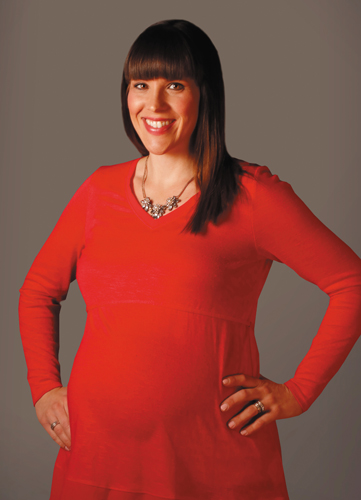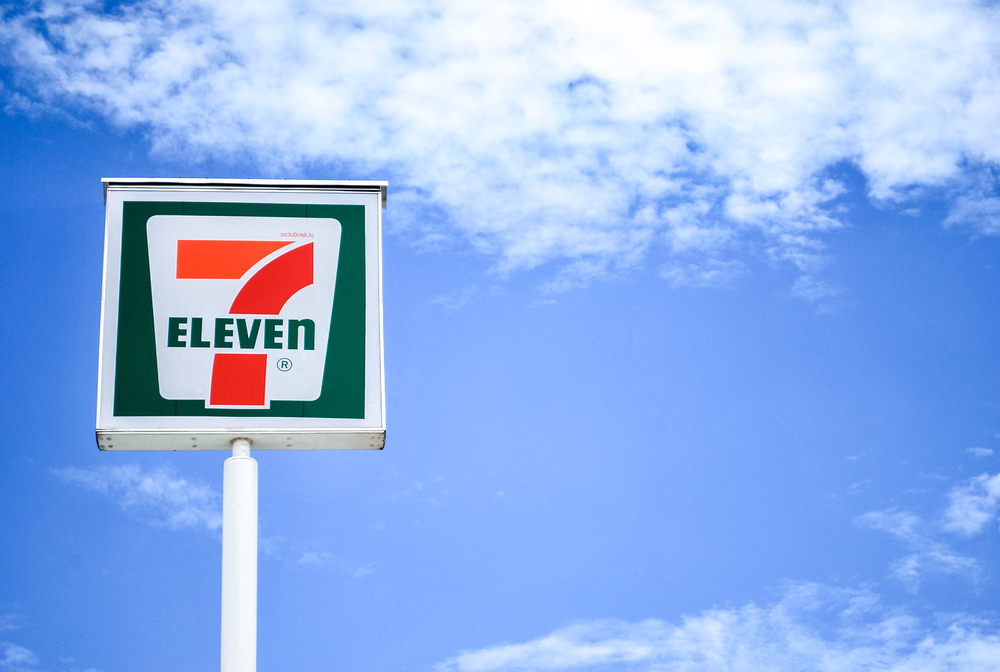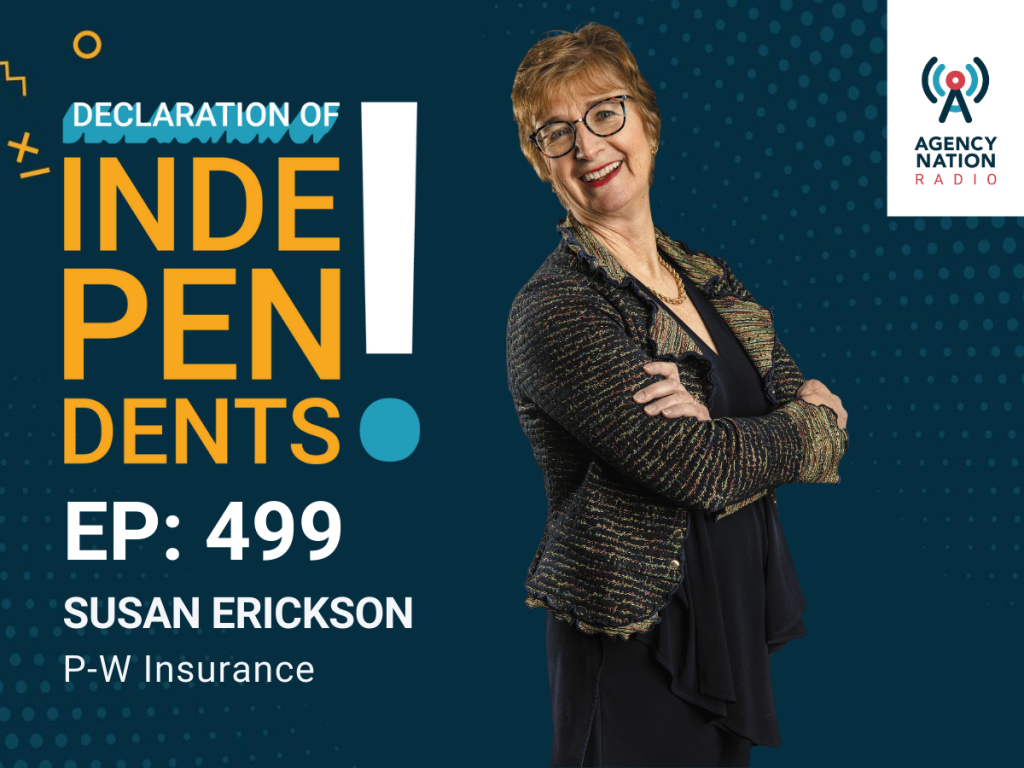Declaration of Independents: Ashley Winebrenner

By: Jacquelyn Connelly
Ashley Winebrenner
Insurance Agent
Dwyer Insurance Agency
London, Ohio
When a family friend’s daughter was diagnosed with an inoperable brain tumor at the age of 5, independent agent Ashley Winebrenner decided it was time to take action.
Along with her mom Johnda and Reagyn’s mom Carol, Winebrenner founded Rockin’ on the Run in 2010 to support children battling brain cancer. Now entering its ninth year, the event has raised more than $112,000 for Nationwide Children’s Hospital in Columbus, Ohio.
INSPIRATION?
Before Reagyn, I thought people always died of brain tumors, that they were super rare, that nobody I knew would ever get one. Almost immediately, two other kids in our area were also diagnosed. It’s something you don’t hear about, and it’s so underfunded. We’re on a mission to bring awareness to these kids and their fights.
Reagyn is 17 now and you’d never know she had a brain tumor. The kids meet each other at Rockin’ on the Run, and they get to see there is a light at the end of this tunnel. It just blows my mind—adults get illnesses and they think the world should be so sad, but these kids are fighting for their lives and they’re still smiling. Kids are so resilient.
PERPETUATING THE VISION?
I want my kids to grow up with the mindset that we give back because we’re healthy and because we can. That’s just what we do. That’s just who we are.
EVENT DAY?
We have the 5K, which we promote as a walk/run. About 100 runners come for the race, and then we have around 300 average people from the community with their dog or strollers or grandma. But you don’t have to do the race—we also have a silent auction that’s one of the biggest the community has. We do a 50/50 raffle, and we have lots of vendors that come and set up—woodworking and pottery and face painting and balloon artists, caricaturists, entertainment, food. It’s sort of like a festival.
Everyone pre-registers gets a goodie bag with swag from all kinds of businesses and from the hospital we donate to, as well as information about brain tumors. We have these brochures that explain if your kid is under five and having these four symptoms, maybe you need to talk to your pediatrician about doing further testing. And then you also get a t-shirt and a medal when you cross the finish line. We try to keep the price low for the registration because it’s a family event—we don’t want to weed anyone out.
Each year we honor several kids in the area who are fighting brain cancer, and we give all of them and their immediate families free registration so they can come enjoy the day. That way they get to just be kids and family—quote-unquote “normal.”
PAYING IT FORWARD?
This year, our goal is to raise $25,000 to donate to the hospital. In 2017, we donated $22,500 in monetary form, plus seven red wagons, which the hospital uses to transport the kids and all their stuff. The wagons see four or five miles a day typically, so they don’t last, so this coming year we’ll probably replace the three that we donated in 2016.
We’re always looking for different ways to send not just a check, but money for specific things. When you register for the event, you can decide whether you want your money to go to brain cancer research or what they call the floor’s “fun fund”—everything that’s not medicine. It could be playing cards for the kids, or money to pay a teacher who comes in every summer to help catch the kids up so they don’t fall behind in school.
Some people are really hesitant to donate to research because it’s so vague—they may feel like, “What is this money really going toward?” People want to have fun with the kids. They want to throw them a party, they want to get them a cake, they want to send them Christmas presents, they want to feel like they’re really making an immediate difference.
But we’ve developed a really good relationship with two physicians in the research department at the hospital, and they actually come to our event and speak about their research. Because of that, we’ve seen a shift where more people are actually donating to the research than they are to the fun fund. Now, it’s not just “research,” whatever that means. It’s, “Here’s exactly what we’re doing, and we need money to possibly find a cure or just get one step closer.”
COMMUNITY SPIRIT?
We have a lot of younger kids and teenagers that help during the day—the schools have really gotten behind it. I think it’s hard for younger people to see that things in a small town can make a big difference, because a lot of them are thinking, “We’re stuck here in this small town and we can’t wait to get out.” But you can make a difference here too. You can make a difference anywhere—you just have to put your mind to it.
MAKING A DIFFERENCE?
I graduated from college with a marketing degree with no intention of ever becoming an insurance agent. I worked in the private sector for two different companies in their marketing departments, and then got laid off and went to nursing school. This was around the time my grandpa got really sick, and Reagyn was diagnosed shortly after. I wanted to work in pediatric oncology—I just felt like that was my calling. Then I got pregnant with my first daughter, had my baby, went right back to school for about four months, and found out I was pregnant with my second baby. I stayed in school and made the decision to take a leave of absence when my second was born.
My husband is a police officer, and our shifts would have interfered in such a way that we couldn’t be home with our daughters. My dad is the principal of our agency, and his secretary was retiring right at the same time all this was happening. I thought, “Maybe I should take a look at the agency, just as a part-time thing when the kids are young, and then I’m going to go back to school.” But I’ve been here ever since—six years now.
When I was in the private sector I was just sitting behind a desk, not really feeling like I was making much of a difference. And I worried that I would feel the same way in insurance, but I think what’s different is the customer interaction in a small town. People come in to pay their bills and they call you and you see them at Kroger or at the high school football game. There’s a sense of community that comes through. You get to help them not be alone when they need somebody there.
COMMUNITY + INSURANCE?
The Rockin’ on the Run office is actually in the same building as our agency. It’s neat to see how many of our clients support Rockin’ on the Run. These are just the kind of clients we have—caring, hometown people. The community really rallies around these kids.
Photo by Larry Hamill










